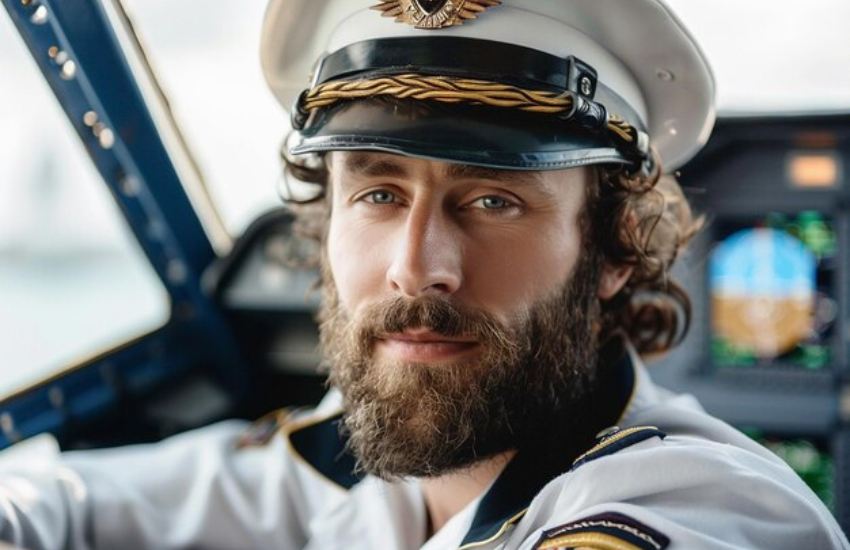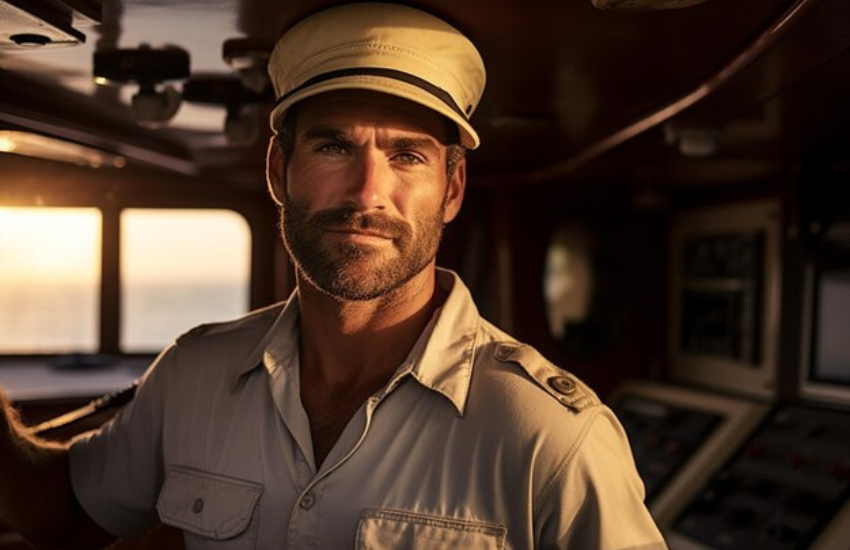The Early Life of Federico Capelli
Born into a world where maritime trade and exploration shaped economies, Captain Federico Capelli’s early years were likely influenced by the oceanic ambitions of his community. His hometown’s proximity to bustling ports and vibrant shipping routes probably instilled in him a fascination for the sea.
Historical records often suggest that captains like Capelli came from families with maritime connections or access to naval training. Apprenticeships and education in seamanship, navigation, and ship management were common stepping stones.
The Evolution of Maritime Roles
During Capelli’s era, maritime roles evolved to meet the demands of expanding empires and growing international trade. Captains were pivotal figures, tasked with managing not only the ship and its crew but also the valuable cargo or military resources aboard.
Maritime jobs ranged from deckhands and navigators to specialized officers overseeing trade goods. The captain’s role, however, stood out for its combination of leadership, technical expertise, and accountability.
Training and Skills of a Captain
Federico Capelli’s job demanded a diverse skill set. Captains in his era underwent rigorous training in navigation, ship handling, and crew management. They had to master celestial navigation, using tools like the sextant and astrolabe to chart courses across vast oceans.
Additionally, captains needed sharp leadership skills to maintain discipline among the crew, ensure safety, and execute orders effectively. The ability to adapt to unpredictable situations, such as storms or piracy, was essential.

Maritime Technology During His Time
The ships of Capelli’s time were marvels of engineering, combining centuries of shipbuilding innovation. These vessels were powered by sails and relied on skilled crews to maneuver through the seas. Key technologies included:
- Navigational Tools: Sextants, compasses, and chronometers for accurate timekeeping.
- Communication Methods: Flags and lanterns for signaling other ships.
- Defensive Equipment: Cannons and other armaments to deter pirates or enemy vessels.
Capelli’s ability to use these technologies effectively would have been integral to his success.
Capelli’s Job Responsibilities
Captain Federico Capelli’s job encompassed numerous responsibilities, including:
- Navigation: Plotting routes to ensure timely and safe voyages.
- Cargo Management: Overseeing loading, unloading, and securing goods.
- Crew Supervision: Leading a team, delegating duties, and maintaining discipline.
- Safety and Maintenance: Ensuring the ship’s integrity and addressing repairs.
- Communication: Coordinating with ports, authorities, and other ships.
These tasks required unwavering focus and a proactive approach to problem-solving.
Challenges Faced at Sea
Life at sea presented numerous challenges. Captain Capelli likely dealt with:
- Weather: Navigating storms, high waves, and unpredictable winds.
- Piracy: Defending against attacks from pirates or rival nations.
- Health Risks: Preventing illnesses like scurvy and managing limited medical supplies.
- Crew Morale: Maintaining order among a potentially restless crew.
Each voyage tested a captain’s resilience and resourcefulness.
Trade and Commerce in Capelli’s Era
Maritime trade was the lifeblood of economies during Capelli’s time. Ships carried spices, textiles, and other goods that fueled international markets. Captains like Capelli were essential in connecting distant regions, ensuring the smooth transfer of goods, and bolstering economic growth.
Military and Strategic Roles
Beyond trade, Capelli may have been involved in military missions, exploring uncharted territories, or defending maritime routes. His work likely contributed to his nation’s strategic interests, exemplifying the dual role of captains as traders and protectors.
Famous Voyages and Achievements
While specific records of Federico Capelli’s voyages may be limited, captains of his stature often undertook significant missions. These could include:
- Establishing new trade routes.
- Delivering critical supplies during wartime.
- Assisting in exploration and mapping unknown regions.

Cultural and Historical Impact
Capelli’s job was more than just a profession; it was a cultural touchstone that influenced art, literature, and societal perceptions of maritime life. Stories of captains and their exploits became legends, inspiring generations.
The Legacy of Maritime Captains
The role of captains like Federico Capelli shaped the course of history. Their work contributed to:
- Advancements in navigation and shipbuilding.
- Expansion of global trade networks.
- Strengthening national security through naval power.
Modern Reflections on Capelli’s Work
Today, the responsibilities of maritime captains share similarities with those of Capelli’s era, albeit with advanced technology. Modern captains use GPS systems, automated navigation, and satellite communication, but the core principles of leadership and decision-making remain unchanged.
Preserving Maritime History
Efforts to preserve the legacy of figures like Federico Capelli include:
- Museums and archives dedicated to maritime history.
- Restoration of historical ships.
- Scholarly research and publications.
These initiatives ensure that the contributions of maritime professionals are not forgotten.
Conclusion
Captain Federico Capelli’s job was emblematic of a transformative era in maritime history. His responsibilities, achievements, and challenges reflect the critical role of captains in shaping the modern world. As we continue to explore the seas, the legacy of seafaring pioneers like Capelli serves as a testament to human ingenuity and determination.

